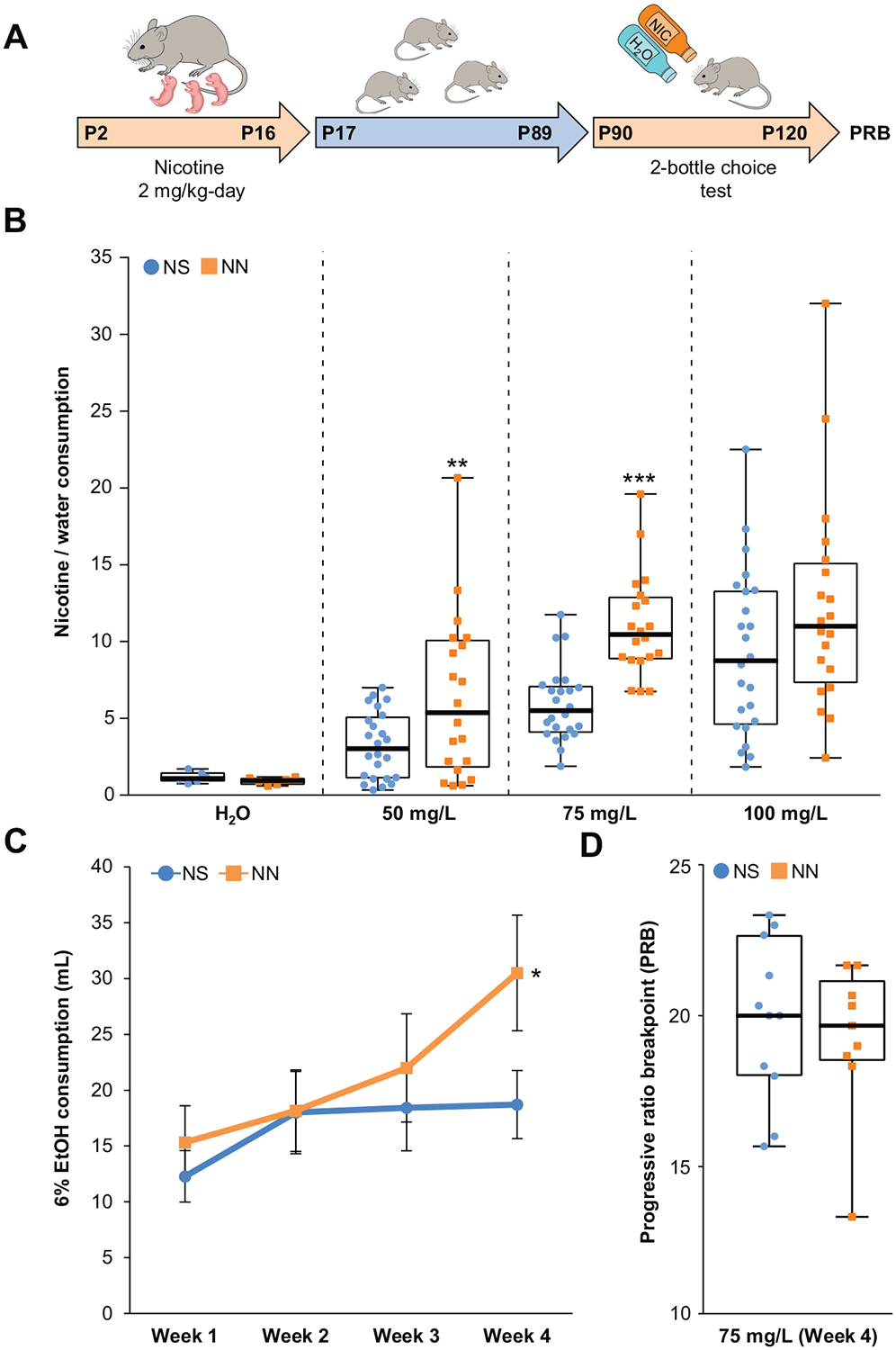Figure 1.

Neonatal nicotine (NN) exposure increases drug preference in adult mice. (A) Experimental timeline: mice were neonatally exposed to nicotine (or saline [NS]) from postnatal day 2 (P2) to P16 through lactation, then raised in standard conditions until adults (P17–P89). At P90, they underwent 4 weeks of two-bottle-choice test for (50, 75, or 100 mg/L) nicotine or 6% ethanol (EtOH). At P120, mice performed the progressive ratio breakpoint (PRB) test. (B) NN treatment significantly increases nicotine (50–75 mg/L) preference over water (nNS = 24, nNN = 20; 50 mg/L, t42 = 2.64, p, .01; 75 mg/L, t42 = 5.86, p, .001). Graph shows all data points (fourth week) with medians and interquartile range. **p, .01, ***p, .001. (C) Quantification of 6% ethanol consumption over 4 weeks (n = 6 per group, repeated measures analysis of variance F3,8 = 0.7, p, .05). Graph shows mean ± SE. *p, .05. (D) NN exposure does not alter motivation to drug seeking measured by PRB test to compare NS- and NN-treated mice. Graph shows all data points with medians and interquartile ranges.
